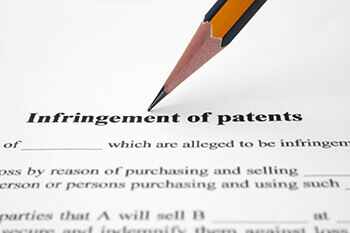Intellectual Property Law
The Basics of a Cease & Desist Letter
What is a Cease & Desist Letter?
C&D letters accuse you of doing something improper or unlawful, and demand that you stop the unlawful conduct. Such letters are often related to infringement of intellectual property, such as copyrights, trademarks, or patents. However, they can also be related to contract situations, defamation claims, and many other civil causes of action.
What do you do if you receive a Cease & Desist Letter?
Keep in mind that an attorney’s expertise can assist you in every aspect of your response/next steps regarding the letter.
What are the facts surrounding the allegation? A C&D letter will likely provide some factual context for any allegations. Investigate the accuracy and begin compiling your own set of facts. If the letter contains no such facts, then request them from the other party or their attorney.
What is the work you are allegedly infringing? The C&D letter will usually contain a copy of, or a specific reference to, the other party’s work. How similar is it to your work? Have you seen this work before?
Save relevant information. You cannot destroy any information relevant to the claims asserted in the C&D letter. Courts take this matter very seriously.
What are your defenses? After reviewing the other party’s work and the factual context of the allegations, you can begin brainstorming available defenses. Depending on the factual context or the relationship you have with the other party, you may also have certain counterclaims against the other party. Again, an attorney can help you decide what rights of yours may have been violated.
What is your exposure? If you believe you are vulnerable to litigation, then you should assess what your potential damages might be.
For more information on C&D letters in regard to patent infringement, please see our blog.

Catherine Rajwani
Principal Attorney
PHONE: 508-393-9244
EMAIL: crajwani@harborlaw.com
Catherine Rajwani is an intellectual property and business litigation attorney.
Ms. Rajwani handles a full range of intellectual property and business issues in her practice including patent, trademark, copyright, trade secret, contract and business tort disputes. She has participated in all phases of litigation, from pre-litigation counseling through trial and appeal, in federal courts throughout the country. She is also skilled in alternative dispute resolution proceedings.
Find out more about issues in our related practice areas
Intellectual Property Law
Trademark Protection
Trade Secrets
Copyrights
Patents
Intellectual Property Law
Insights, opinions and decisions you should know about

Defend Trade Secrets Act: Two Years Later
It has been more than two years since President Obama signed the Defend Trade Secrets Act (DTSA) into law, which created a federal, private, civil cause of action for trade-secret misappropriation in which “[a]n owner of a trade secret that is misappropriated may...

Where Do You Sue for Patent Infringement? – Proper Venue Post ‘TC Heartland’
In May of 2017, the Supreme Court unanimously reversed the Federal Circuit’s 25-year-old precedent on venue for corporate defendants.[1] Venue is the proper or most convenient location for trial of a case, and is governed by state and federal statutes. The 10-page...

Cost-Effective Mechanisms for Enforcing Intellectual Property Rights
In my practice, I counsel small and midsize business clients, many of which are astute with regard to securing their intellectual property rights. They have federally registered their trademarks with the U.S. Patent and Trademark Office, secured a portfolio of patents...

How Do I Defend a Patent Lawsuit?
The Top 5 Ways to Defend Your Company in Patent Infringement Litigation You discover that your company has been sued for patent infringement. After reviewing the patent cited in the complaint, you determine that the technology described relates to your company’s...
Get in touch with us.
Learn more about how we can help.